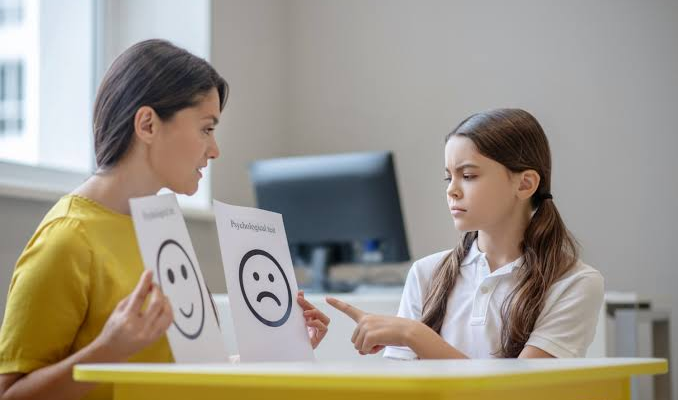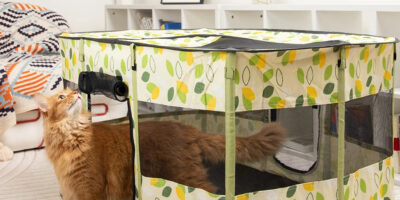As guardians, parental figures, and teachers, we as a whole wish for the best future for our youngsters. We believe they should develop into well-rounded, emotionally intelligent people who can deal with life’s difficulties with elegance and compassion. In this pursuit, positive discipline arises as an incredible asset that empowers appropriate conduct as well as encourages the improvement of emotional intelligence to understand people on a deeper level in youngsters.
What is Positive Discipline?
Positive discipline is a way to approach parenting and teaching that focuses on mutual respect, understanding, and sympathy. Unlike traditional disciplinary techniques that depend on punishment and rewards, positive discipline underlines the utilization of communication, critical thinking, and support to show youngsters significant fundamental skills.
Steps To Nurturing Emotional Intelligence and Good Behavior in Children
Set Clear Boundaries and Expectations
The foundation of positive discipline lies in defining clear limits and expectations. Youngsters need structure to feel safe and secure, and by laying out consistent rules, they will comprehend what is generally anticipated of them. While defining limits, include the child in the process, making sense of the reasons behind each rule. This approach advances a feeling of obligation as well as helps in the improvement of critical thinking skills.
Use Effective Communication
Communication is of the utmost importance for positive discipline. Listen effectively to your kid’s thoughts and feelings, showing them that their opinions are valued. At the point when conflicts emerge, address them with tranquility and consciously, permitting the kid to communicate their feelings. Through open communication, youngsters figure out how to communicate their thoughts valuably and grasp the perspectives of others.

Positive Discipline: A Guide to Encouraging Good Behavior and Nurturing Emotional Intelligence in Children
Replace Punishment with Logical Consequences
Traditional discipline frequently depends on punishment, which might prompt hatred and a negative emotional impact on children. Positive discipline, be that as it may, promotes logical consequences, where the youngster gains from their actions in a natural way. For example, if a youngster fails to remember their umbrella and gets wet in the rain the coherent result is getting wet, which can act as a significant illustration to be more careful next time.
Encourage Positive Behavior through Reinforcement
Rather than utilizing rewards, which can create an external motivation, positive discipline supports characteristic inspiration by reinforcing positive behavior. Acclaim and recognize your kid’s efforts, featuring the particular activities they took that were exemplary. This uplifting feedback supports their confidence and urges them to settle on better decisions later on.
Teach Emotional Intelligence
The capacity to appreciate people on a profound level is a vital fundamental ability that assists kids with dealing with their feelings, understanding others’ feelings, and constructing meaningful relationships. At the point when a kid feels resentful or disappointed, offer solace and backing, instructing them that encountering these emotions and providing coping strategies to handle them.
Promote Problem-Solving Skills
Life is loaded up with difficulties, and positive discipline outfits kids with critical thinking abilities to actually explore them. At the point when conflicts arise, include the youngster in finding solutions together. Support brainstorming and evaluating potential outcomes, assisting them with grasping the outcomes of their decisions. By engaging them to be part of the solution, youngsters gain trust in their capacities to autonomously tackle issues and make positive choices.
Lead by Example
Youngsters are sharp eyewitnesses, and they often learn by reflecting on the behavior of adults around them. In positive discipline, leading by example is essential. Model the conduct you wish to find in your kid — exhibit sympathy, persistence, and respect in your interactions with them and others. This consistent modeling of positive conduct will have an enduring effect on their development.
Be Patient and Understanding
Bringing up emotionally intelligent kids through positive discipline and parental guidance is definitely not a short-term process. It requires tolerance, understanding, and adaptability. Mistakes will occur, and difficulties are normal. Move toward every circumstance with empathy and a readiness to learn together. Embrace the journey of growth and improvement, celebrating both the victories and the difficulties.
Wrap Up
Positive discipline fills in as a strong aide for empowering good behavior and nurturing emotional intelligence in youngsters. By defining clear limits, utilizing effective communication, promoting problem-solving, and demonstrating a positive way of behaving, we enable kids to become strong, sympathetic, and caring people. Let us embrace the philosophy of positive discipline and establish a sustaining climate that fosters the development of our youngsters into exceptional grown-ups, prepared to confront the world with certainty and graciousness.
























Comments